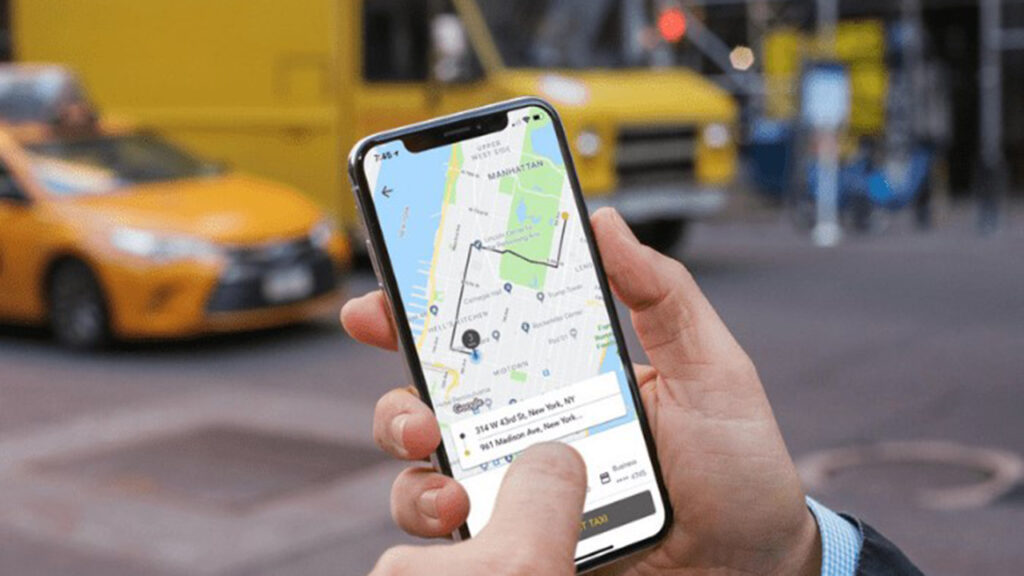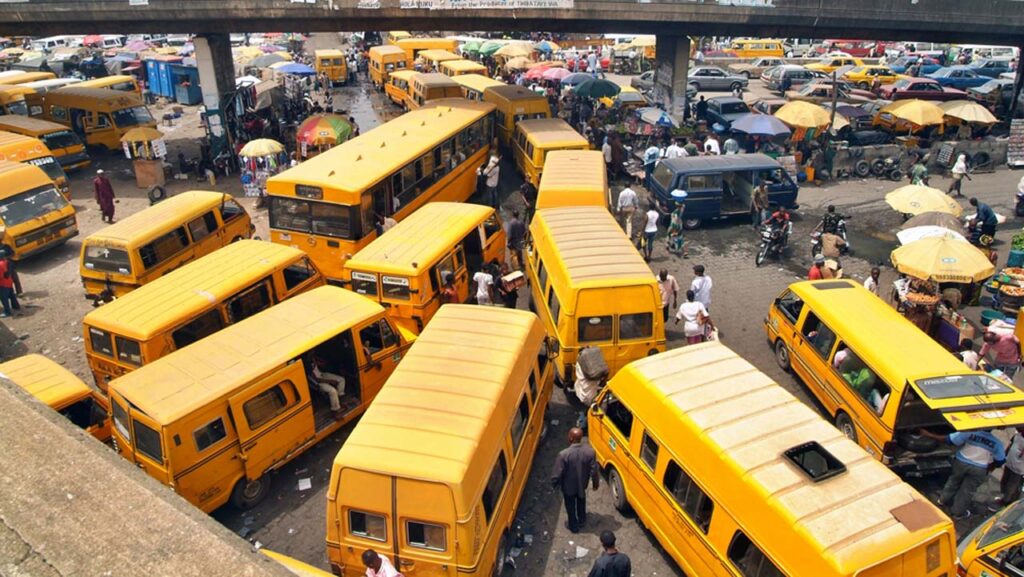
The recent increase in the operational licence fees for ride-hailing services in the country has led to between 40 and 50 per cent hike in commission charged by operators. BERTRAM NWANNEKANMA, writes that the absence of regulation has impacted the daily earnings of over 200,000 drivers across the country, while platform owners smile to the banks.
The entry of e-hailing taxi platforms (EHTPs) into the Nigerian market in 2014 was celebrated as a big boost to moving Nigerians from Point A to Point B. In addition to the impact that it was expected to have on the nation’s economy, it was specifically seen as a means of driving down the country’s high unemployment rate.
Indeed, by the end of this year, the ride-hailing market in Nigeria is anticipated to generate about $252.7 million in revenue.The sector is also expected to witness a compound yearly growth rate (CAGR 2024-2028) of 10.74 cent, leading to a projected market size of $380 million by 2028.
Ride-hailing has also grown exponentially with a presence in about 22 states, and cities such as Lagos, Abuja, Zaria, Owerri, Uyo, Calabar, Kano, Abeokuta, Enugu, Ibadan, Benin, Warri, Ado Ekiti, Bauchi, Ilorin, Makurdi, Aba, Akure, Asaba, Jos, Kaduna, Onitsha and Port Harcourt.
Presently, about 19 platforms are offering ride-hailing services in the country. Apart from Uber and Bolt, others include Jekalo, InDriver, Oga Taxi, Carxie, Pamdrive Services Limited, RideMe, Alpha1 Rides, Asocab, Easy Taxi, Lagos Ride, Mycabman, Pair, Rida, RideOn, SafeBoda, Shuttlers, Enviable Transport with GIGM, offering inter-state and inter-country services.
However, 10 years down the line, the enthusiasm that greeted the advent of the initiative, especially among youths, who embraced it as a way of escaping from the unemployment pool is dwindling by the day, irrespective of the number of new entrants.
In addition to the removal of fuel subsidies by the Federal Government, which added to spiking the maintenance cost of operational vehicles, and lowering income, the lack of a national regulatory agency to proffer uniform commission for each trip, and general insecurity in the country, operators said have added to the challenges besetting them.
Also, while Nigerians are forced to pay more from their dwindling incomes, the government and platform owners get richer without considering the plights of the drivers and citizens.
Since the launch of EHTPs in the country, there has been a growing need to put in place regulations to guide the operations of the service to eliminate monopoly, security concerns, consumer protection, and (possibly the most important for the regulators), tax/revenue generation.
In 2020, the Lagos State Government issued new guidelines, which it tagged: “Online Hailing Business Operation of Taxi in Lagos State, 2020 Guidelines,” which enforcement commenced on August 27, 2020.
Consequently, a 10 per cent service tax was imposed on each payment made by passengers to the operators as a tax on the income of the e-hailing companies.
Like the ban on commercial motorcycles, the state government also cited safety concerns, and the need for a clear-cut policy on the transportation sector as the basis for the introduction of the new guidelines.
For instance, the operational licence for platforms with more than 10,000 drivers was pegged at N20 million, while that payable for companies with less than 10,000 drivers was N10 million.
To guard against sharp practices and prevent the state from being shortchanged, ride-hailing platforms were mandated to allow the government to plug into their Application Programming Interface (API) to understand their data and number of drivers, which The Guardian gathered that some of the platforms are not comfortable with.
In addition to the Lagos State government increasing the booking fee, it also charged drivers N20 and later N30 as road maintenance levy on each trip carried on the platform.
Apart from Lagos, the Rivers State Government in 2022, also introduced some form of taxation on e-hailing taxi operators in the name of registration and profiling.
Two drivers in the state, Ifiemi Andrew and David Olaniyan, complained that it amounts to double taxation as the companies they work for are already collecting taxes from them, which they believe should be maintained.
“If you are talking about taxes, the e-hailing apps are taxing us already. So, why is the government coming up with all these?” They asked. Owing to this and the fuel subsidy removal, which has impacted their operations, platform owners increased their charges, which made a whole lot of things difficult for the drivers. Presently, major operators are taking between 20 per cent and 25 per cent commission for each trip that drivers make.
Bolt takes, for instance, 25 per cent; UBER 20 per cent, while InDriver takes about 10 per cent and Rida takes less than 10 per cent. In locations where they are still coming up, both InDriver and Rida don’t take any commission.
While drivers are lamenting levies and charges, their passengers are complaining that the hike is eating deep into their pockets thereby worsening their financial woes occasioned by the nation’s economic downturns.
One of those affected by the fare hike is Damilola Onamade, a fashion designer who is in the Isolo part of Lagos. Onamade, who said that she spends over N15,000 to deliver goods to her customers in Lagos Island, stressed: “I don’t even know what’s going on. This economy is not smiling at anyone. The few times that I’ve gone out, I can say that fares have gone way up.
A passenger, Daniel Adeola, who booked a ride from Ijora Olopa to Toyota Bus Stop, along the Oshodi-Apapa Expressway, said that he spent about N10,000 for a ride that should have cost about half of that amount.
Drivers’ dwindling income amid rising charges
Despite the increase in charges paid by passengers, what drivers take home has dwindled to the point that maintenance of their vehicles is becoming a herculean task.
Many have also exited the business because they can no longer meet up with the cost of logistics. The worst hits are those who are not owners of the operational vehicles that they use.
Confirming this to The Guardian, a spokesperson for the Amalgamated Union of App-Based Transporters of Nigeria (AUATON), Jossy Olawale Adaraniwon, said that the increase in the operational licence fees whether in Lagos or any other state is affecting drivers’ earnings because the platforms pay all these taxes and operation licences through their income or revenue.
According to him, the business is so profitable for the platform owners, and the N20 million operational license might not affect them because it is an amount that they can make within hours in a day.
“The removal of the fuel subsidy has made a whole lot of things difficult for the drivers. So we have been looking at ways that platform owners can cut down their commissions to 10 per cent, which we have always advocated for.”
Adaraniwon stressed that fuel subsidy removal and increase in the prices of trips imposed by the app companies (who fix the prices) has left many drivers empty-pocketed, in addition to driving many others back into the labour market.
“Our members do not have improved earnings on their jobs. Rather their businesses are declining and that is why we are looking at alternatives for them, including trying to adopt Compressed Natural Gas (CNG) where drivers can convert, and power their cars with CNG, which is cheaper and environmentally friendly compared to fuel. Thankfully, some banks are ready to provide loan facilities.
“Drivers’ gross earnings are between N35,000 and N40,000 daily, and their net earnings should be around N5,000 and N7,000. But drivers are mainly going home now with N5000 because expenses have eaten deep into their gross profit. In some cases, some go home with nothing because of emergency repairs on their cars.
“For now, there is no national regulation that is why the Amalgamated Union of App-Based Transporters of Nigeria (AUATON) is championing the creation of a national regulatory body to look into the activities of both operators and the transporters.”
Absence of incentives by the government worrisome
For now, the union has not benefited in any way from the government apart from the latter approving the registration of the union, which is also seen as a big milestone for the drivers.
By that approval, the union is automatically qualified to collect dues from its members, and through those dues, improve their conditions, and provide welfare and support services to them.
Adaraniwon said: “For now, we have not been able to collect these dues because it is part of the regulations that we are pushing through. We want to get it from the source, and we are working with the Federal Ministry of Transportation.
“Recently, we had a workshop in Abuja where the Ministry of Transport, the Ministry of Employment and Productivity, and platform owners were present. We are looking at how we can have a national regulation, that will provide support, and enhanced welfare services for our drivers, particularly health insurance, pensions, and everything that makes their job easy, as well as, enable the union to collect check-ups due directly. The App companies are aligning themselves with this development.”
Drivers as an integral part of the ride-hailing business
Responding, Uber, one of the major operators in the sub-sector through its spokesperson, Lorraine Onduru, said that drivers are at the heart of everything that ride-hailing outfits do, and that explains why the company remains committed to providing better earning opportunities and solutions to their problems.
As a global business that operates locally, we are constantly monitoring local dynamics to see what changes can be implemented, and when.
“We believe that Uber provides good economic opportunities in Nigeria, and at a time of unprecedented economic uncertainty and with inflation peaking around the world, flexible work on platforms like Uber is more important than ever.”
Also, Rida’s Head of Operation, Abuja, and Port Harcourt, Destiny Ameh, submitted that the increase in commissions from five per cent to about 10 per cent followed difficult operational challenges.
According to him, the increment was a result of harsh business operations, and to meet up with operational costs after the company’s headquarters stopped financing operations in Nigeria for two years.
He stressed that the platform, like others, depends on the drivers to succeed, hence the firm’s consideration in collecting about 10 percent commission for each trip.
He, however, lamented that many drivers were bypassing the process, even though the take-home pay for serious drivers is still lucrative because the cost is transferred to their customers.
While stressing the need for the regulator to achieve uniformity on commission payable per trip, he, however, expressed doubts over its implementation as many platform owners may not subscribe to it.













